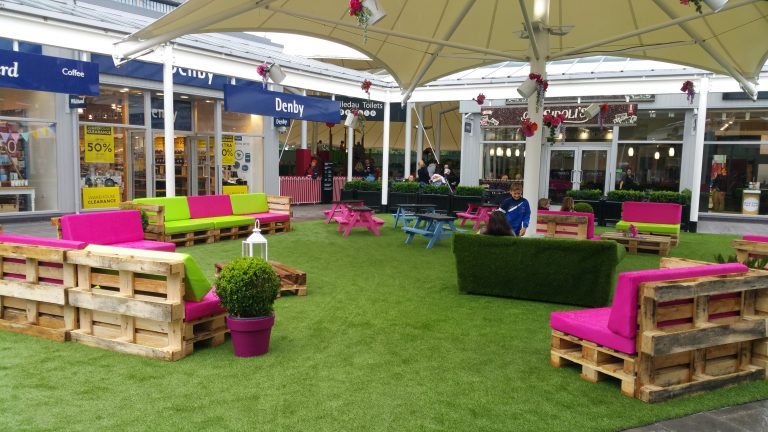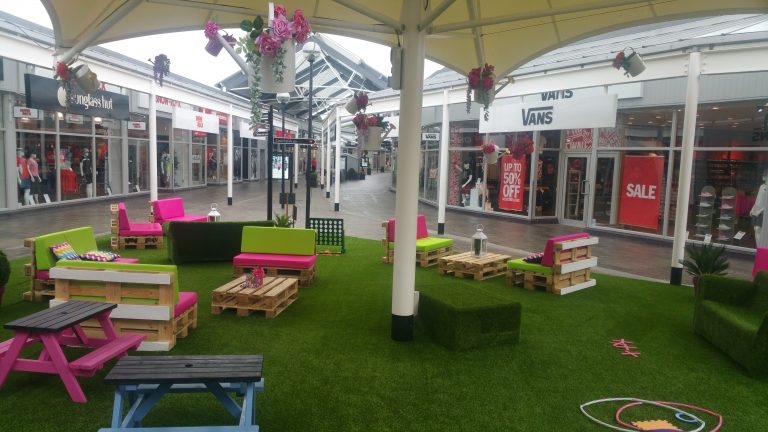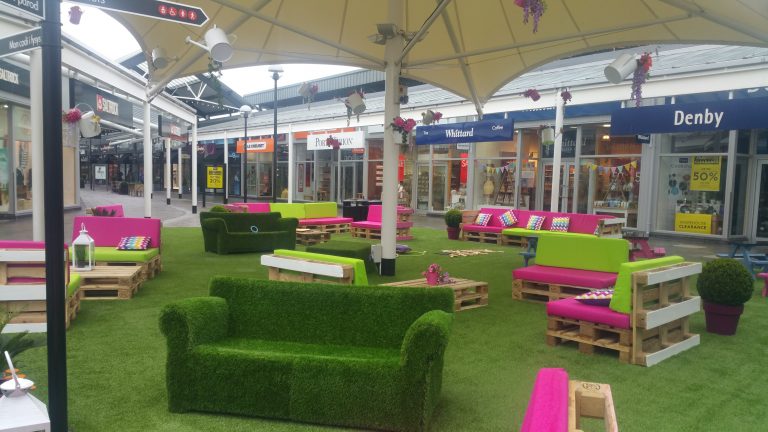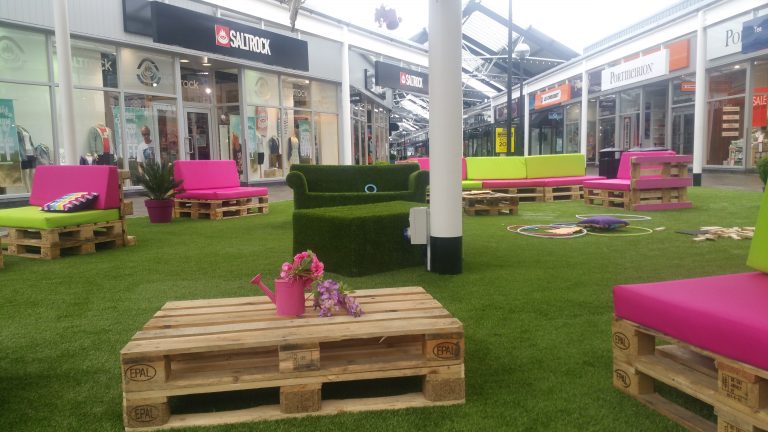Artificial Grass Sensory and Safe Play Gardens for SEN Schools
Artificial grass creates a fun, safe and interactive space for SEN school children
Our aim
Gorilla Grass is proud to have worked in the provision of artificial grass with SEN schools for children with learning difficulties.
Our specific aim for SEN schools is to enrich the lives of children of all ages and abilities who don’t always have the same opportunities to play in mainstream play areas by creating new learning experiences in a fun and safe environment.
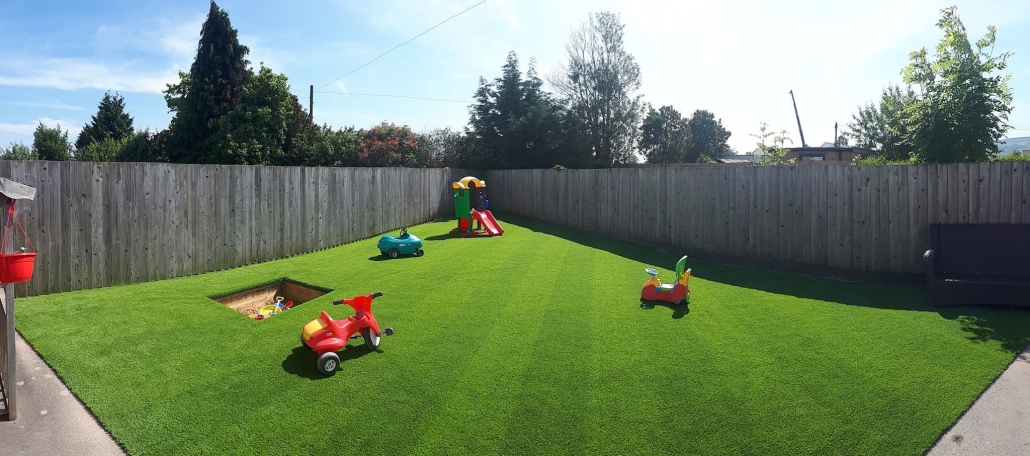
Enrichment
Our artificial grass comes in a variety of bright colours and different textures which encourages interaction, play and stimulates the imagination.
We know that every child deserves to enjoy their playtime, therefore we actively listen to, and carry out, the wishes of schools to suit their pupil’s diverse needs. We are able to tailor make fun designs which allow schools to have access to very special and unique spaces which are useable all year round.
With a wide assortment of colours, we can make traditional games such as Hopscotch or Snakes and Ladders, or we can create fantastic different worlds, (for example; underwater, jungle and desert), with many different scenes and animals for the children to play with to further enrich their experiences.
We can also provide innovative and quirky artificial grass furniture such as bean bags, chairs, tables, sofas and even ‘mud kitchens’ to further encourage pupils to interact with the surrounding environment in positive and imaginative ways.
Safety is key
With very low maintenance requirements, our grass is especially easy to keep clean. We can also install shock pads of various thicknesses under the grass to decrease the chance of injury and create an even safer environment for children to explore with no worries.
Synthetic turf is a fantastic alternative to a concrete playground because it allows schools to maximise the potential of an otherwise dull and outdated space, and the super soft textures of the grass that we offer significantly reduce the chance of scraped knees and elbows! The versatility of artificial grass means that a space of any shape and size can be completely transformed improving the safety, enjoyment and enrichment of pupils whilst at school.
For further information, please visit our gallery or news pages. If you have any questions, or are looking for some advice, please do not hesitate to contact our friendly and helpful team on 0800 999 6665 or gorillagrass@gmail.com
Sensory Gardens For Autism
Sensory gardens have numerous advantages and are an excellent way to improve the sensory development of autistic children.
Autism is a developmental disorder that causes difficulties with social interaction, communication, and behaviour. Sufferers often have delayed language development and struggle to understand the emotions of others. Individuals with autism are prone to a wide range of cognitive, learning, emotional, and behavioural issues. There is no cure for autism, but there are therapies such as speech and language therapy, occupational therapy, educational support, sensory aids, and a variety of autism interventions that can help sufferers and improve their quality of life.
What Exactly Is A Sensory Garden?
A sensory garden uses various plants and materials to stimulate all of the senses: sight, touch, taste, and sound. Autism sufferers can explore their senses in a safe and stimulating environment thanks to these gardens. Early intervention is critical for autistic children, and a sensory garden allows them to explore their senses without becoming overwhelmed.
Sight
For visual stimulation, when designing a sensory garden, it is beneficial to be creative with the colours incorporated into the garden. Plants, stones, gravel, and even bricks can provide colour. The balance of this colour is critical; take care not to introduce too many bright colours into one space.
You may want to include signs depending on the size of your sensory garden. Because half of the autism population is nonverbal, communicating the intention of specific areas of the garden can be beneficial to these people.
Sound
In terms of sound, you can create a sense of peace and tranquillity while also stimulating the senses. You might want to include water features or grasses that make interesting sounds in your sensory garden. Pampas and Pearl grasses are ideal for this. Wind blowing through leaves and stems can also produce calming sounds, so plants like bamboos and large-leafed plants work exceptionally well.
Alternatively, you don’t have to limit yourself to only natural sounds; you could include some gentle instruments in the garden, such as the Cadenza, that children can play with. Wind chimes or a Sonora, on the other hand, are lovely additions to the garden.
Smell
In your sensory garden, all plants and materials will emit different scents. Honeysuckle, lavender, and mint are all good choices for this. Choose scents that will complement each other when planning the perfect scents for your sensory garden; try to pair more subtle scents with a few stronger scents to keep it interesting to the senses.
Taste
Although taste is a less obvious sense to appeal to with your sensory garden, you can include edible flowers in your garden. It might be best to keep all of the edible plants together so that no one is confused about what can and cannot be eaten. Fruit trees and bushes, as well as tomatoes and strawberries, are obvious edible plants that could be included. A raspberry bush, which is easy to grow and produces a popular and tasty fruit, is a top recommendation from us!
Touch
In your sensory garden, you should focus on appealing to the sense of touch. You can play around with a variety of textures. Lamb’s ear plants are ideal for this because, as the name implies, they are woolly and soft. Sage from Jerusalem
is another good choice, as it has soft leaves and stems, as well as colourful flowers. Then add some different textures, such as Houseleek, which has rigid leaves. Or African Sundew, which is extremely sticky to the touch.
Sensory Gardening Supplies
In addition to the natural aspects of your garden, choose sensory garden products that can provide additional visual, noise, and touch stimulation. When planning the layout of your sensory garden, try to include some sensory pathways that all connect to one another. Stepping stones, pebbles, bricks, and even tile mosaics can be used. You can then create keyhole gardens to create an intimate space surrounded by the lovely sensory plants you’ve chosen.
Contact with nature has been shown in studies to reduce the symptoms of Autism Spectrum Disorder. Many autistic children also have Sensory Integration Dysfunction (SID), which causes hypersensitivity to all things sensory, so a sensory garden provides a calming space for children to play outdoors. Distracting activities, such as sensory garden toys or gardening tasks, can assist autistic children in overcoming their hypersensitivity to their surroundings.
Being in nature is generally beneficial to an individual’s health and well-being, but having a space designed specifically for an autism sufferer allows them to explore a space and find an area that makes them feel good. Giving people a choice of activities or areas to explore gives them a sense of control, as well as a sense of empowerment and self-confidence.
At Gorilla Artificial Grass Ltd., we have extensive experience in designing the ideal sensory garden for autistic children. Please do not hesitate to contact us if you require any advice or want to learn more.

